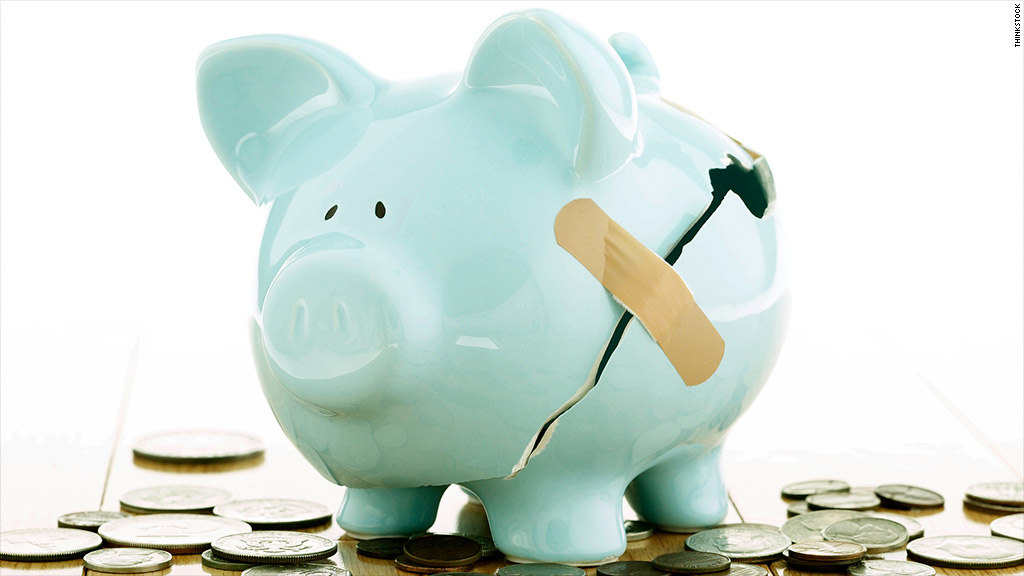
Many Americans are still failing to sock away enough money to pay for retirement -- or emergencies for that matter, according to a survey of more than 1,000 people released Monday.
Only half of respondents reported good savings habits, including having a spending and/or saving plan in place, according to the Consumer Federation of America and the American Savings Education Council which conducted the survey.
While more than half of all Baby Boomers and Gen-Xers will be able to retire with enough money to cover basic retirement needs, including health care costs, a significant number are at risk of running short, according to projections by the Employee Benefit Research Institute.
The survey also found that only 49% of non-retired respondents feel they are saving enough to achieve a "desirable standard of living" in retirement.
When it came to overall household savings, the survey found there was little improvement compared to last year.
"Clearly the great recession has had a lingering effect on many Americans," said Stephen Brobeck, executive director of the Consumer Federation of America. "Millions of families have been unable to make progress in rebuilding their finances, especially their savings."
Related: Money 101 saving basics
Of those surveyed, 38% said they were saving less than last year, compared to 30% who said they were saving more than last year. Only 41% of all respondents said that they save outside of work through automatic transfers from checking to savings or investments. About two-thirds said they had sufficient emergency savings to cover unexpected expenses like car repairs or a doctor visit.
In a separate survey released earlier Monday, Bankrate reported that just 55% of Americans have more cash stowed away for hard times than they owe on their credit cards -- up from 52% two years ago.
"We know from other research that if one does not have adequate emergency savings, it's much more difficult for people to save for other purposes, either a home or retirement," said Brobeck.

Paying down credit card debt is also a key step in developing better savings habits, he said, because it's hard to save when losing cash to high interest payments.
In the Bankrate.com survey, nearly 70% of respondents making at least $75,000 a year had more savings than credit card debt, compared to 41% of those making less than $30,000.
Less than half of low-to-moderate-income Americans even have a savings or money market account, Brobeck said, citing a CFA analysis of Federal Reserve data. "But having an account if you have a relatively low or moderate income is the most important thing you need to do," he said.
As part of America Saves Week, more than 1,300 national, state and local financial and nonprofit organizations are encouraging Americans to boost their savings through simple steps, such as opening a savings account, setting up automatic transfers and increasing their 401(k) contributions.
